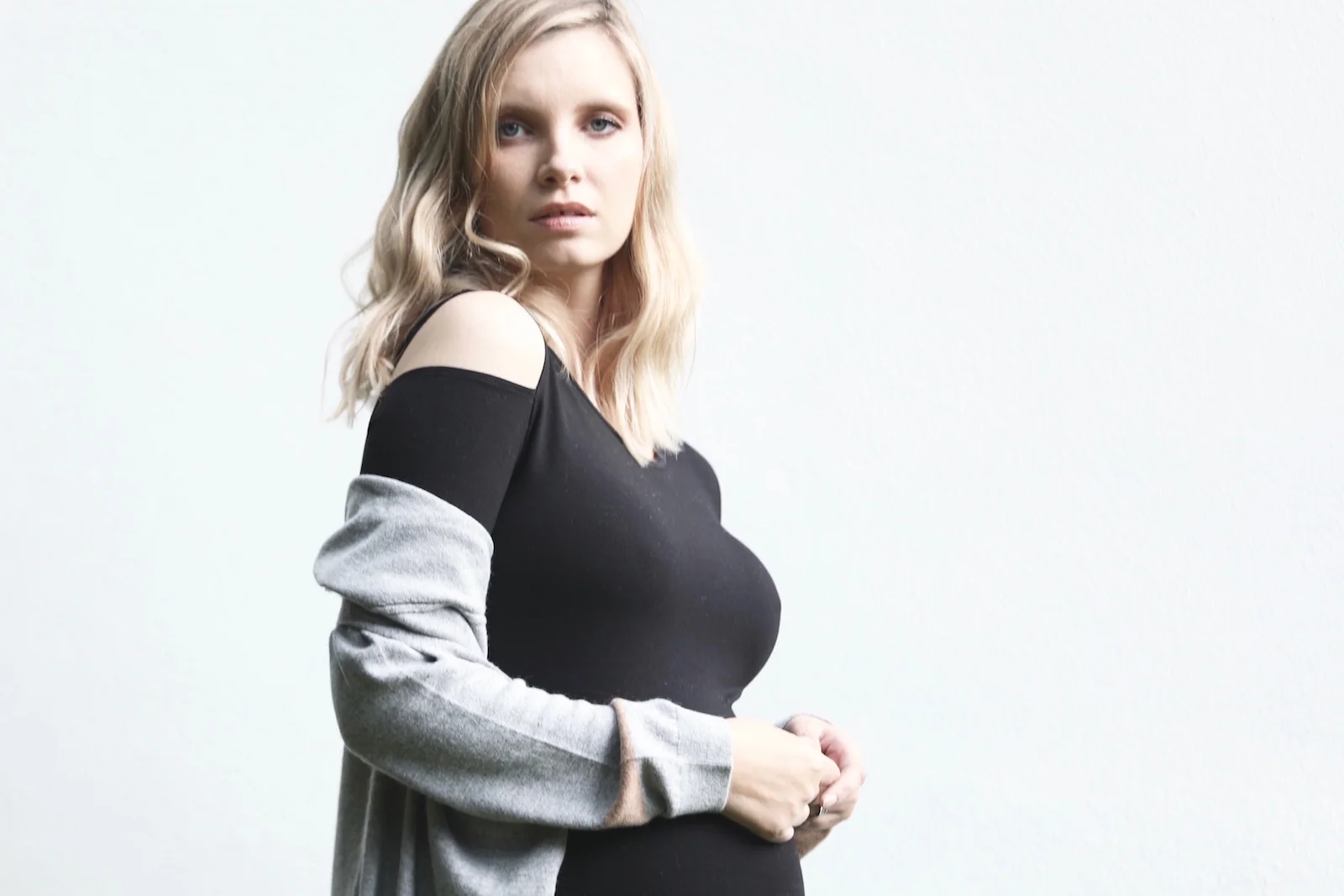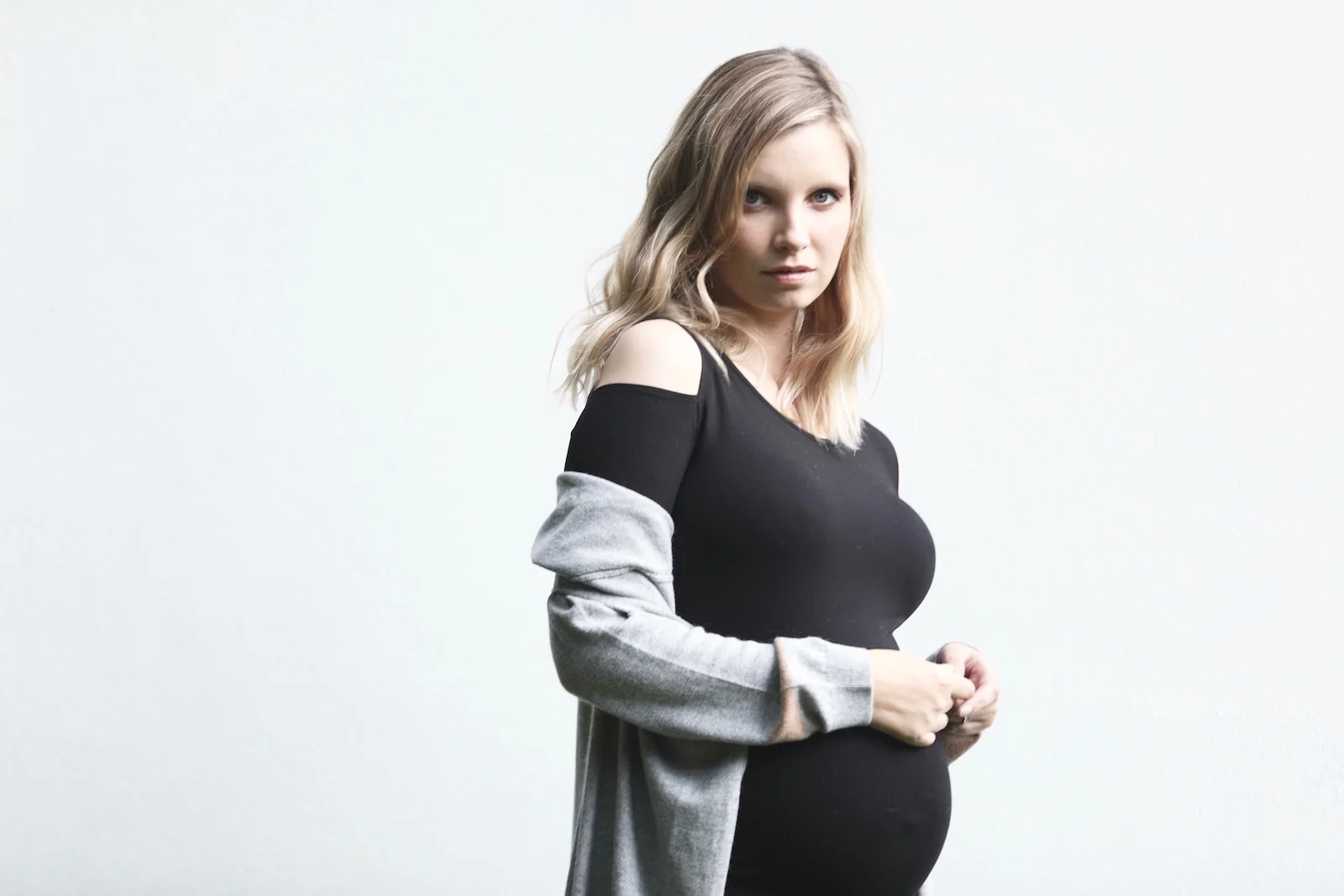The whole issue of “safety” when it comes to certain skincare ingredients during pregnancy is a touchy one and experts seem to have quite divided opinions on it, which doesn’t help when you’re looking for solid information on something at an already very confusing and anxiety-ridden time.
To help clear things up, I asked cosmetic dermatologist Dr Sam Bunting to answer some of my burning questions about pregnancy safe skincare. Dr Sam trained at Cambridge University and UCL and became a Member of the Royal College of Physicians in 2002. She has her own practice on Harley Street and regularly contributes to dozens of magazines as well as presenting popular TV shows such as Extreme Beauty Disasters. Dr Sam has very kindly given us the amazing opportunity to ask her advice via a Twitter Q&A, so keep reading to find out how you can join in.
The main ingredients that seem to cause concern during pregnancy are retinol (Vitamin A, which has quite amazing effects on the skin in terms of plumping and de-lining and helping with pigmentation) and salicylic acid (a brilliant beta hydroxy acid that helps tackle acne in a big, big way). Salicylic has been shown to cause birth defects if taken in high dosages orally, and the same for Vitamin A.
Many experts and professionals say that these ingredients are perfectly safe at the (topically applied) levels you would see in a shop-bought, non-prescription product. Others warn to steer clear. My own two cents? I tend to avoid both during pregnancy, mainly because I’m a big “what if” sort of person and simply can’t deal with any added stress – especially if I have to try and find out what sort of strength an ingredient is being used at – but also because there are some great alternatives out there, in terms of effective ingredients. (See upcoming post, currently in editing mode but will be with you imminently!) So it’s not the end of the world, beauty-wise, to avoid them for nine months…
…saying that, I don’t particularly need salicylic acid when I’m pregnant, or retinol, for that matter, because my skin – luckily – tends to be almost flawless. Apart from during the first couple of months. Perhaps if I had very bad, self-confidence-ruining acne, and it was made worse by pregnancy hormones, I would feel differently. But that’s just my own view on the matter*. What about an expert opinion? Here’s what Dr Sam Bunting had to say in answer to my questions:
What are the most common skin complaints seen in pregnancy? Does pregnancy tend to worsen existing skin problems?
Dr Sam: “Acne and melasma are, by far, the most common complaints I see in the practice. There are also certain conditions that occur only in pregnancy – the most well-known being Prurutic Urticated Papules of Pregnancy, or PUPP. And of course the dreaded stretchmarks which affect as many as 90% of women during pregnancy.
Many sources say to completely avoid salicylic acid and retinol during pregnancy. Why is this?
Dr Sam: “I recommend ditching retinoids and salicylic acid during pregnancy. Retinoids are vitamin A derivatives – vitamin A plays an important role in development of your baby during the first trimester, so it’s important we don’t interfere with that. Salicylic acid (aspirin) is to be avoided in the oral form during pregnancy as it can affect baby growth, so I think the cautious approach is to avoid it topically given that we have good alternatives.”
What are good alternatives to look out for instead of salicylic and retinol?
Dr Sam: “I recommend adding in safe skin balancers to help control blemishes – I’d recommend niacinamide or Vitamin B3 (5% is effective) and azelaic acid – I’m comfortable using this on prescription at 15 or 20% strength, as its FDA Category B. As a bonus, they also help with pigmentation so are a winning addition. For the pigmentation-prone, Vitamin C and Alpha hydroxy acids are also safe.
Are there any specific products that you recommend professionally for pregnant women suffering with acne or breakouts?
Dr Sam: “Freederm Gel (see here) is a good, safe choice for active, inflamed blemishes. I also love Elta MD UV Clear sunscreen (see here) which combines physical sunscreen zinc oxide and blemish-fighting niacinamide in one easy layer. If acne is more active, there are safe, stronger things that can be prescribed through a dermatologist. For my acne patients in the clinic, I recommend planning to come off your retinoid onto a prescription-grade pregnancy–compatible regime before you start trying for a baby. This avoids things flaring up when you fall pregnant and have to stop your usual acne treatment abruptly.”
“As a final note, if you change nothing else about your routine in pregnancy, add daily sunscreen into the mix – its SO important. As many as 40% of women develop melasma or the mask of pregnancy and something as simple as using a physical sunscreen containing zinc oxide properly on a daily basis can prevent it.”
Do you have any skincare questions you’d like to ask Dr Sam? We will be on Twitter this Friday (27th January) from 2-3pm, chatting about skincare and pregnancy and answering queries. We were going to keep things pregnancy-specific, but depending on how much time we have, there may be space for more general questions too, so please come and join in! Make sure you’re following me (@modelrecommends) and Dr Sam (@drsambunting) so that you see all of the questions and answers, and use the hashtag #askdrsam so that we can easily pick out the relevant tweets. If you can’t join us, then please leave your question in the comments below and I will try and ask them on your behalf!
*I should add that ultimately it is your face, your body, your pregnancy and your decision. If you are happy to spend time researching strengths of ingredients in certain products you wish to use, then there’s nothing wrong with that at all. Equally, I wouldn’t panic if I found out I was pregnant and I had been using shop-bought products with low levels of the ingredients above – in fact it happened to me both times. I just think that many people online, who may not be total beauty junkies or skincare enthusiasts, are looking for clear information and I hope that this is an easy guide.




0 Comments